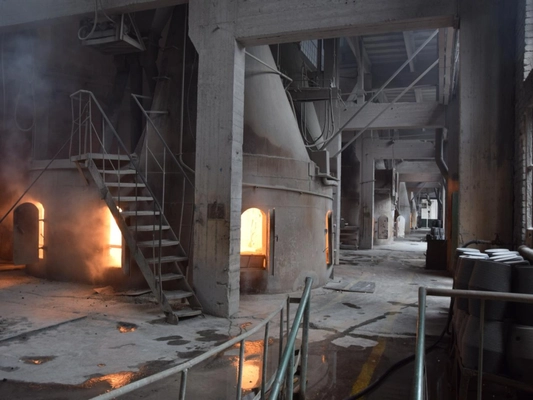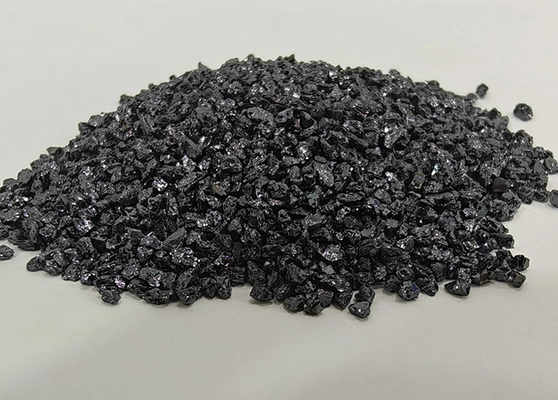Quick Answer: The global abrasive grain industry is driven by rising demand from steel, automotive, construction, and electronics. Leading manufacturers include Saint-Gobain (France), Washington Mills (USA), Fujimi (Japan), CUMI (India), and major Chinese suppliers in Zhengzhou. As a factory, CanAbrasive provides high-quality silicon carbide and fused alumina products that meet FEPA and JIS standards, offering reliable alternatives to global players.

Table of Contents
- Global Demand Trends
- Global Industry Overview
- Regional Leaders
- Manufacturer Comparison Table
- Competitive Trends and Future Outlook
- Procurement Guidelines
- FAQ
- References
Global Demand Trends
From our factory’s perspective, we have witnessed rapid growth in abrasive demand over the last decade. Key drivers include:
- Steel Industry: Grinding and surface finishing of steel products account for the largest share of abrasive consumption.
- Automotive: Vehicle lightweighting and precision machining require high-performance abrasives.
- Construction: Increasing urbanization in Asia and Africa boosts demand for abrasives in stone cutting and concrete polishing.
- Electronics & Semiconductors: Micro powders (SiC, WFA) are critical for wafer polishing and advanced ceramics.
Regionally: Europe and North America focus on high-end precision abrasives, Asia-Pacific (China, India) drives mass production, while emerging markets like Southeast Asia and Africa grow through infrastructure projects.
Global Industry Overview
Abrasive grains can be divided into several categories:
- Silicon Carbide (SiC): Black and green grades, widely used in grinding, blasting, and refractory materials.
- Brown Fused Alumina (BFA): High toughness, suitable for heavy grinding and refractory bricks.
- White Fused Alumina (WFA): High purity, excellent for polishing, electronics, and high-grade refractories.
- Zirconia Alumina: Used in high-performance grinding wheels.
According to market reports, the global abrasive grain market is projected to grow at 5–6% CAGR in the next 5 years, driven by steelmaking, automotive lightweighting, and renewable energy applications.
Regional Leaders
Europe & North America
- Saint-Gobain Abrasives (France): A global leader with strong R&D, producing SiC, BFA, and WFA.
- Washington Mills (USA): One of the oldest producers, with a wide product portfolio including SiC and alumina.
- Treibacher (Austria): Specializes in niche high-performance materials, including SiC powders.
Japan
- Fujimi Corporation: Known for advanced micro powders for semiconductors and precision polishing.
- Showa Denko / Denka: Focuses on high-purity SiC and alumina powders for electronics.
India
- CUMI (Carborundum Universal): A major producer of SiC and alumina, with cost advantages and strong South Asian presence.
China
- Zhengzhou Region: The world’s largest production base for silicon carbide and fused alumina.
- CanAbrasive: As a Chinese manufacturer, we supply stable-quality SiC and fused alumina products, conforming to FEPA and JIS standards, with competitive pricing and flexible logistics for global customers.
Russia & Others
- Russia: Domestic suppliers focus on SiC for metallurgical and refractory applications.
- Korea & Southeast Asia: Growing producers, supplying regional demand and export markets.
Manufacturer Comparison Table
| Company | Country | Main Products | Strengths |
|---|---|---|---|
| Saint-Gobain | France | SiC, BFA, WFA | Strong R&D, premium quality |
| Washington Mills | USA | SiC, BFA, WFA, Zirconia alumina | Long history, wide range |
| Fujimi | Japan | SiC micro powders, WFA | Semiconductor-grade products |
| CUMI | India | SiC, BFA, WFA | Cost-effective, integrated manufacturing |
| CanAbrasive | China | SiC, BFA, WFA | Stable quality, competitive pricing, flexible delivery |
Competitive Trends and Future Outlook
- Europe & USA: Moving toward high-value, sustainable abrasives.
- Japan: Strengthening position in semiconductor and electronics abrasives.
- China & India: Expanding mass production capacity with cost advantages.
- Global Trend: Recycling, environmental regulations, and digitalized supply chains.
Procurement Guidelines
From a manufacturer’s perspective, buyers should consider the following:
- Verify compliance with FEPA, JIS, or ANSI standards.
- Request particle size distribution reports for consistency.
- Check certifications: ISO 9001, ISO 14001, REACH compliance.
- Compare total landed costs, not only FOB prices.
- Evaluate supplier responsiveness, flexibility, and after-sales support.
Frequently Asked Questions (FAQ)
Who are the largest global abrasive grain producers?
Saint-Gobain, Washington Mills, Fujimi, CUMI, and Chinese producers in Zhengzhou are among the largest, with CanAbrasive as a competitive supplier from China.
Which country produces the most abrasive grains?
China is the largest producer, accounting for more than 60% of global silicon carbide and fused alumina capacity.
What are the main types of abrasive grains?
Silicon carbide (black, green), brown fused alumina, white fused alumina, and zirconia alumina.
What certifications should I check when sourcing abrasives?
ISO 9001 for quality, ISO 14001 for environment, and compliance with FEPA/JIS grading standards.
References
- FEPA Grain Standards, 2023 Edition.
- Saint-Gobain Abrasives Annual Report, 2023.
- Washington Mills – Company Overview, 2023.
- Fujimi Corporation – Product Catalog, 2023.
- CUMI Abrasives Annual Report, 2023.
- Markets & Markets Abrasives Market Forecast, 2024.
Request a Quote or Sample
Popular Products
Grünes Siliziumkarbid
View DetailsSchwarzes Siliziumkarbid
View Details